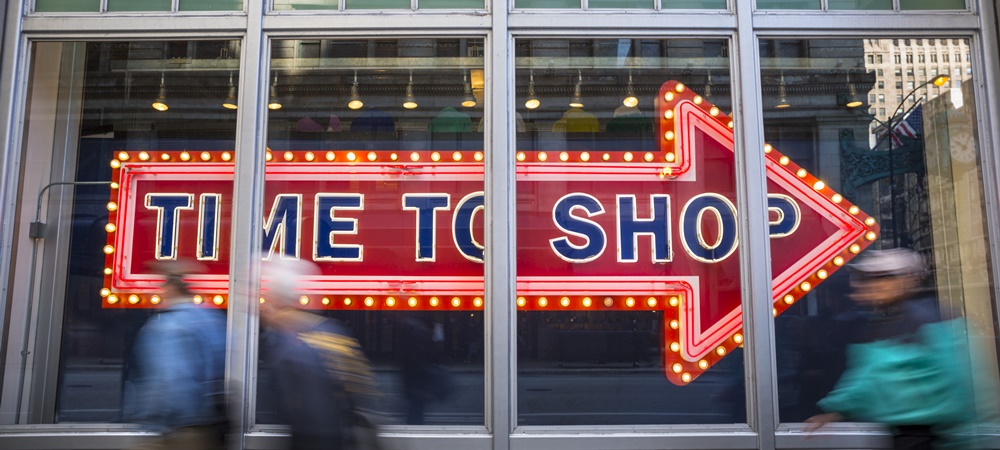It’s October once again, and if you’re a retailer, you know this can only mean one thing: it’s time to ramp up your holiday planning. The Christmas season is the biggest shopping period of the year, and for many businesses holiday sales can account for up to 30 per cent of their annual sales.
No doubt your competitors will bring their A-game during the holidays, so you need to work extra hard now to prepare for the seasonal boost. To help, retail expert Francesca Nicasio has put together several key tasks you should take care of before the Christmas season.
1. Plan your holiday displays
Make sure your displays (i.e. window and in-store displays, shop layouts) grab attention and entice people to buy. Start planning what you’ll showcase in your store and craft the stories that you’ll tell through your displays.
From a logistical standpoint, ensure you have the materials you need to set up stunning displays. ‘Sale’ signs are standard but be sure to throw in unique messages to get the attention of holiday shoppers. Signs such as ‘The gift you forgot!’ can be even more effective.
2. Order holiday-specific merchandise
Will you be selling gift items or holiday-themed merchandise? What about gift bundles? If so, you should place those orders soon. Complete your holiday inventory planning, and order merchandise by the end of the month at the latest to ensure that you’re able to stock up on in-demand holiday items.
The same goes for gift cards. Gift cards are popular during the Christmas season and they’re great for your bottom line. Order holiday-centric gift cards soon and plan where and how you’re going to promote them. The last thing you want is to run out.
3. Make your website holiday-centric
Ensure that your website has a holiday feel to it. For instance, you may want to plan the Christmas-themed banners or imagery that you’ll display. And during the holidays, many retailers create special gift sections or categories such as ‘For Her’ or ‘Gifts under $50’. If you’re running seasonal promotions, ensure visitors can access and redeem your offers easily both on your website and in-store.
4. Social selling
Use your Instagram and Facebook accounts to connect with potential customers and promote special Christmas-themed gifts or create buying guides for different types of customers. You can use your social media accounts to boost awareness of your in-store activities and promotions leading up to Christmas. If you start planning now, you can create fun, engaging content for each of the 25 days of December and continue posting into the holiday sale season.
5. Hire seasonal staff for the rush
If you’re hiring additional staff this season, now is the time to start looking. Get the word out by posting on job boards, putting signs up in-store, re-hiring previous employees, and asking for referrals. There are also a handful of up-and-coming online and mobile marketplaces that specialise in short-term/temporary staffing such as SideKicker, ScoutJobs and Found.
6. Make sure you have ample store supplies
The holidays will be hectic and the last thing you want is to run out of supplies when the Christmas season is in full swing. Prepare those supplies now so you won’t have to worry about them later. This is likely to include cash desk supplies, payment terminal paper, receipt paper, gift boxes, hangers and cleaning supplies.
7. Tighten up security
The holidays bring more store traffic, but this can also mean more opportunities for theft. Get your loss prevention ducks in a row well before the Christmas season picks up. Consider implementing the following:
Set the right user permissions—most modern point-of-sale systems allow you to set user permissions to enable or restrict staff members from doing certain tasks. Check with your POS solution provider and see how you can update permissions in your store—not every staff member needs to have the same level of access and responsibility. You should also be vigilant when it comes to who can process voided sales, as this is a very easy way to steal stock.
Invest in loss prevention solutions—there are plenty of tools and technologies that can help beef up store security. Depending on your store and budget, you could consider investing in things like mirrors, cameras, RFID and foot traffic technologies.
Conduct partial inventory counts—consider cycle counting instead of doing full inventory counts. Cycle counting involves doing a stocktake of certain portions of inventory on a daily or weekly basis so you won’t have to do a full inventory count. In doing so, you’re able to identify stock discrepancies and theft sooner rather than later. Not to mention, cycle counting helps you stay on top of inventory without disrupting regular store hours, especially if you use a mobile tool—there are some good free ones out there available via the app store.
 Francesca Nicasio is a retail expert at Vend.
Francesca Nicasio is a retail expert at Vend.
Want the latest retail news delivered straight to your inbox? Click here to sign up to the weekly retailbiz newsletter.

